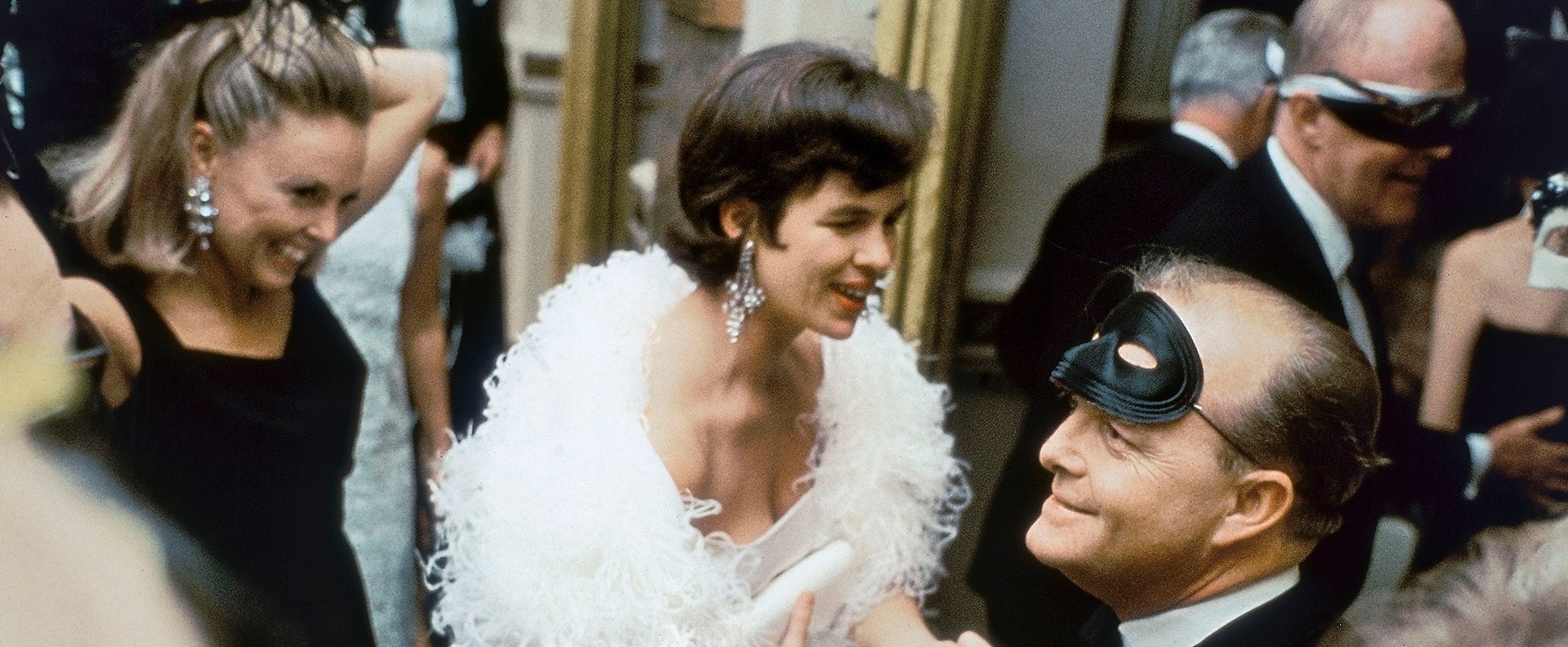The Capote Tapes review - lush portrait of the louche writer | reviews, news & interviews
The Capote Tapes review - lush portrait of the louche writer
The Capote Tapes review - lush portrait of the louche writer
Entertaining documentary portraying a figure once described as the 'fairy Huck Finn'

"A candied tarantula" is one of the many great descriptions of Truman Capote that light up this conventionally made but enjoyable profile of the American author most famous for Breakfast at Tiffany’s and&nbs
To make his portrait, Burnough had access to the interview tapes that George Plimpton of the Paris Review had recorded with Capote’s friends, admirers and enemies. It’s quite a voice cast and includes Lauren Bacall, Gore Vidal, Gavin Lambert and Norman Mailer, who off-handedly describes the author as a “beautiful faggot prince”. In addition to these audio extracts, which are played out over appropriate film archive, animation and stills, there are new on-screen interviews with writers including Jay McInerney, Cólm Toibín and John Richardson as well as a fabulous turn by Vogue’s André Leon Talley and the elderly but still astute talk-show host Dick Cavett. They all provide excellent insights into Truman Capote's love-hate relationship with American high society. He was both its most razor sharp and amusing observer and in his last unfinished novel, Answered Prayers, its eviscerator.
The Capote Tapes producers appear to have had no budgetary problem with assembling an outstanding archive to illustrate their profile. As well as the author’s TV news and chat show appearances, there are plentiful clips from classic films – including a scene with the Dill character in To Kill a Mockingbird, who was probably based on Capote. He had been friends since childhood with novelist Harper Lee. The sanitised but charming film adaptation of Breakfast at Tiffany’s made him famous, but it’s the far grittier In Cold Blood which yields the more interesting backstory. Capote fell in love with one of the murderers, Perry Smith, and promised to show Smith’s human side when he was researching his "non-fiction novel", but then grew impatient for Smith’s execution so he could finish the book. It's a fascinating twist which could have done with a little more screentime exploring the ethics of journalism, but Burnough moves on swiftly to the catastrophic social fall out around Answered Prayers.  Much is made of Capote's betrayal of his chic, high society friends, Babe Paley, Lee Radziwill and Slim Keith who had considered Capote as their amusing raconteur and confidante, only to be outraged when their extramarital affairs were laid bare in the thinly-disguised extracts from Answered Prayers. It’s fun to see the footage of the author at Studio 54 in its heyday and Capote jiggling on stage with Mick Jagger, even if the drunken chat-show interview is a downer. As Jay McInerney observed, there’s nothing sadder than the way Capote turned into a professional talk-show guest at the expense of his writing. There’s not quite enough analysis in the documentary of the writer’s psyche, perhaps elbowed out by the intriguing life story and enjoyable anecdotes. I’d have liked to hear more from one the most interesting interviewees, Kate Harrington, whom Capote unofficially adopted as his daughter when she was 13 and he was having an affair with her abusive father. But that’s a minor criticism of an otherwise very watchable documentary that would sit nicely in a triple bill with the two feature films that have already portrayed the writer, Capote and Infamous.
Much is made of Capote's betrayal of his chic, high society friends, Babe Paley, Lee Radziwill and Slim Keith who had considered Capote as their amusing raconteur and confidante, only to be outraged when their extramarital affairs were laid bare in the thinly-disguised extracts from Answered Prayers. It’s fun to see the footage of the author at Studio 54 in its heyday and Capote jiggling on stage with Mick Jagger, even if the drunken chat-show interview is a downer. As Jay McInerney observed, there’s nothing sadder than the way Capote turned into a professional talk-show guest at the expense of his writing. There’s not quite enough analysis in the documentary of the writer’s psyche, perhaps elbowed out by the intriguing life story and enjoyable anecdotes. I’d have liked to hear more from one the most interesting interviewees, Kate Harrington, whom Capote unofficially adopted as his daughter when she was 13 and he was having an affair with her abusive father. But that’s a minor criticism of an otherwise very watchable documentary that would sit nicely in a triple bill with the two feature films that have already portrayed the writer, Capote and Infamous.
rating
Explore topics
Share this article
The future of Arts Journalism
You can stop theartsdesk.com closing!
We urgently need financing to survive. Our fundraising drive has thus far raised £49,000 but we need to reach £100,000 or we will be forced to close. Please contribute here: https://gofund.me/c3f6033d
And if you can forward this information to anyone who might assist, we’d be grateful.

Subscribe to theartsdesk.com
Thank you for continuing to read our work on theartsdesk.com. For unlimited access to every article in its entirety, including our archive of more than 15,000 pieces, we're asking for £5 per month or £40 per year. We feel it's a very good deal, and hope you do too.
To take a subscription now simply click here.
And if you're looking for that extra gift for a friend or family member, why not treat them to a theartsdesk.com gift subscription?
more Film
 Hot Milk review - a mother of a problem
Emma Mackey shines as a daughter drawn to the deep end of a family trauma
Hot Milk review - a mother of a problem
Emma Mackey shines as a daughter drawn to the deep end of a family trauma
 The Shrouds review - he wouldn't let it lie
More from the gruesome internal affairs department of David Cronenberg
The Shrouds review - he wouldn't let it lie
More from the gruesome internal affairs department of David Cronenberg
 Jurassic World Rebirth review - prehistoric franchise gets a new lease of life
Scarlett Johansson shines in roller-coaster dino-romp
Jurassic World Rebirth review - prehistoric franchise gets a new lease of life
Scarlett Johansson shines in roller-coaster dino-romp
 theartsdesk Q&A: director Andreas Dresen on his anti-Nazi resistance drama 'From Hilde, with Love'
The East German-born filmmaker explains why his biopic of the activist Hilde Coppi isn't bound to the 1940s
theartsdesk Q&A: director Andreas Dresen on his anti-Nazi resistance drama 'From Hilde, with Love'
The East German-born filmmaker explains why his biopic of the activist Hilde Coppi isn't bound to the 1940s
 Chicken Town review - sluggish rural comedy with few laughs (and one chicken)
A comedy great gets lost in an English backwater
Chicken Town review - sluggish rural comedy with few laughs (and one chicken)
A comedy great gets lost in an English backwater
 F1: The Movie review - Brad Pitt rolls back the years as maverick racer Sonny Hayes
Joseph Kosinski's motorsport spectacle delivers bang for your buck
F1: The Movie review - Brad Pitt rolls back the years as maverick racer Sonny Hayes
Joseph Kosinski's motorsport spectacle delivers bang for your buck
 Bleak landscapes and banjos: composer Bernard Hughes discusses his score for 'Chicken Town'
Our critic talks about his recent film project
Bleak landscapes and banjos: composer Bernard Hughes discusses his score for 'Chicken Town'
Our critic talks about his recent film project
 28 Years Later review - an unsentimental, undead education
Allegorical mayhem in an eerily familiar zombie Britain
28 Years Later review - an unsentimental, undead education
Allegorical mayhem in an eerily familiar zombie Britain
 Red Path review - the dead know everything
A compelling story of a trail of Tunisian tears
Red Path review - the dead know everything
A compelling story of a trail of Tunisian tears
 Blu-ray: Darling
John Schlesinger's Sixties classic now feels problematic, but retains an icky fascination
Blu-ray: Darling
John Schlesinger's Sixties classic now feels problematic, but retains an icky fascination
 Tornado review - samurai swordswoman takes Scotland by storm
East meets West meets North of the Border in a wintry 18th-century actioner
Tornado review - samurai swordswoman takes Scotland by storm
East meets West meets North of the Border in a wintry 18th-century actioner

Add comment